
The 10 new books you need to read this week.
Every week, a new crop of great new books hit the shelves. If we could read them all, we would, but since time is finite and so is the human capacity for page-turning, here are a few of the ones we’ll be starting with. What are you reading this week?
FICTION
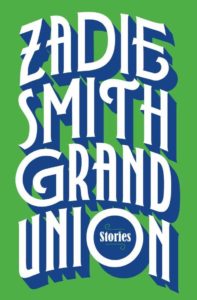 Zadie Smith, Grand Union: Stories
Zadie Smith, Grand Union: Stories
(Penguin Press)
Just as Feel Free, her NBCC-winning collection of nonfiction last year, made it clear that Zadie Smith is our best living critic, Grand Union will make it apparent she’s also one of our finest short story writers, too. Assembling tales from the past two decades with ten brand new ones, Grand Union showcases a huge range of effects, from lyric elegy to high satire and even farce. The compression and swiftness of these tales are opposite skills to the ones Smith has plied in her five, wondrously different novels. Yet to watch these tales unfold is to feel a gladness that only virtuosity—and emotional depth—can ignite.
–John Freeman, Executive Editor
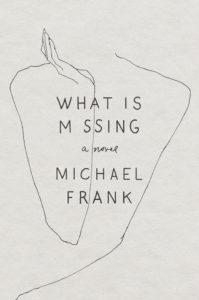 Michael Frank, What Is Missing
Michael Frank, What Is Missing
(FSG)
When a woman’s husband, a famous writer, dies, she finds herself back in her childhood city of Florence, where she meets a sensitive teen and his charismatic father. What ensues between them is part love-triangle, part surrogate family, described with Frank’s habitual acuity, empathy, and fearlessness.
–Emily Firetog, Deputy Editor
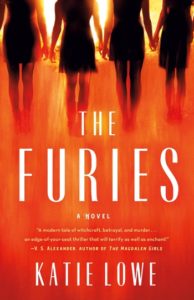 Katie Lowe, The Furies
Katie Lowe, The Furies
(St. Martin’s)
In the late 1990s, a study group at a girls’ boarding school brings together four young women with an interest in mythology, whose studies quickly turn toward the dark and dangerous. Their anger and intensity is given space in a way we don’t often see in coming-of-age stories about young women, and the result is gripping and satisfying.
–Corinne Segal, Senior Editor
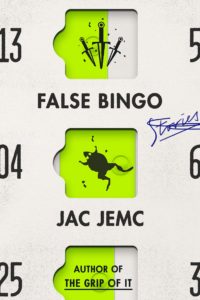 Jac Jemc, False Bingo
Jac Jemc, False Bingo
(MCD x FSG Originals)
A second collection of stories from the author of the celebrated The Grip of It. “These seventeen stories explore what happens when our fears cross over into the real, if only for a fleeting moment,” the publisher writes. “Identities are stolen, alternate universes are revealed, and innocence is lost as the consequences of minor, seemingly harmless decisions erupt to sabotage a false sense of stability.” Here for it.
–Emily Temple, Senior Editor
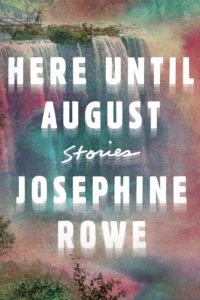 Josephine Rowe, Here Until August
Josephine Rowe, Here Until August
(Catapult)
If you we’re a fan of Josephine Rowe’s debut novel, A Loving, Faithful Animal, you should probably pick up Here Until August. (If you haven’t read A Loving, Faithful Animal, you should probably, definitely also do that.) Eavesdrop on neighbors, spend some time in the Catskills, and meet a dog named Chavez in Rowe’s new short story collection. In eerily beautiful prose, she takes you places you might think you know, and leaves you there to find your way out.
–Katie Yee, Book Marks Assistant Editor
NONFICTION
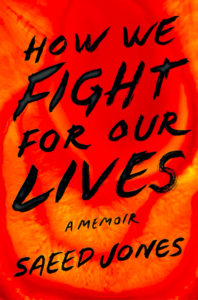 Saeed Jones, How We Fight for Our Lives
Saeed Jones, How We Fight for Our Lives
(Simon & Schuster)
As a young, black, queer man from Texas, poet and journalist Saeed Jones often found himself battling against the expectations of his family, community, and country as he sought to make sense of his own identity. Following up his acclaimed 2014 collection Prelude to Bruise, Jones recounts some of the lessons learned in a memoir blending poetry and prose, an incisive narrative that refuses to conform to any single mold.
–Aaron Robertson, Assistant Editor
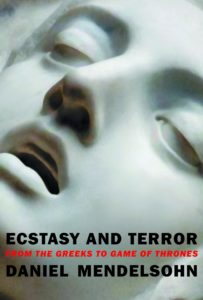 Daniel Mendelsohn, Ecstasy and Terror: From the Greeks to Game of Thrones
Daniel Mendelsohn, Ecstasy and Terror: From the Greeks to Game of Thrones
(NYRB)
Daniel Mendelsohn’s ability to tilt pop culture through the vast complexities of Greek drama has given our bloodsport and binge-watching a depth we desperately need. These essays, collected from his work for the NYRB and elsewhere, bear re-reading as Mendelsohn remains our most unflinching critic, and clearly our most knowledgeable. First and foremost, though, he knows his own mind, so you never feel backed into a phenomenon on a wave of hype, or like a rubberneck watching a malcontent mean spiritedly crapping on the latest craze. Like all great critics, he transmits his curiosity in every sentence, and his dismay with humor. Even when you disagree with Mendelsohn, the feeling upon reading a piece by him is like having gone to Chinese food after the film you just watched with the smartest, most unpretentious friend you possess, and having hashed it out.
–John Freeman, Executive Editor
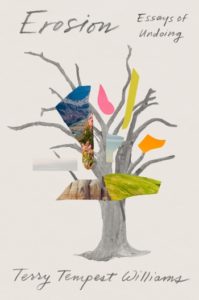 Terry Tempest Williams, Erosion: Essays of Undoing
Terry Tempest Williams, Erosion: Essays of Undoing
(Sarah Crichton Books)
With Erosion: Essays of Undoing, Terry Tempest Williams again turns her attention to the American West, confronting the imprint that human desire, political mismanagement, and extractive industry has made on a landscape that long predates us and will exist after we are gone. With a vivid attentiveness to the details of the land around her, details that seem all the more urgently important for the threats they face, she examines erosion—both of the physical landscape and the mental attitudes that have driven its destruction—as a process that can be damaging, restorative, or a mix of the two.
–Corinne Segal, Senior Editor
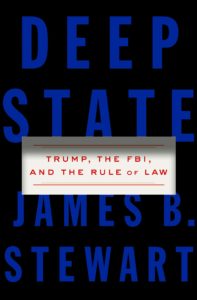 James B. Stewart, Deep State: Trump, the FBI, and the Rule of Law
James B. Stewart, Deep State: Trump, the FBI, and the Rule of Law
(Penguin Press)
Anyone curious as to how the FBI wound up investigating both presidential candidates in 2016 needs to read this upcoming book by Pulitzer Prize-winning journalist James B. Stewart. He has a long history of finding the goods. A former lawyer at Cravanth, Swaine & Moore, Stewart has investigated the practices of giant corporate law firms in the 80s, insider trading and the Clinton impeachment in the 90s, Michael Eisner’s once-storied time at Disney in the 2000s, and lying in general in the 2010s. He is meticulous, rigorous and extremely well-wired into halls of power. Tired of talking points and scoring points? It’d be a shock if this book doesn’t reshape our sense of the political context come fall.
–John Freeman, Executive Editor
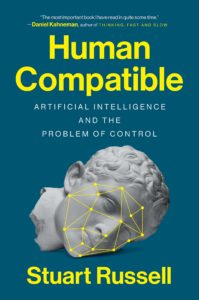 Stuart Russell, Human Compatible: Artificial Intelligence and the Problem of Control
Stuart Russell, Human Compatible: Artificial Intelligence and the Problem of Control
(Viking)
Isaac Asimov’s second law of robotics states that a robot must obey orders given it by human beings except in cases where those orders could bring harm to other humans. Though not explicitly engaged with this precept, computer scientist Stuart Russell’s book essentially sets out to test this idea on artificial intelligence: what groundwork must be laid to ensure that what could theoretically be humankind’s greatest achievement does not become our severest regret? Russell’s idea is to construct AI on a foundation of uncertainty, whereby machines become skeptics of human preferences. By questioning our own motivations, in other words, this AI might learn to be humbler and more “naturally” giving than we ourselves might be.
–Aaron Robertson, Assistant Editor
Emily Temple
Emily Temple is the managing editor at Lit Hub. Her first novel, The Lightness, was published by William Morrow/HarperCollins in June 2020. You can buy it here.



















